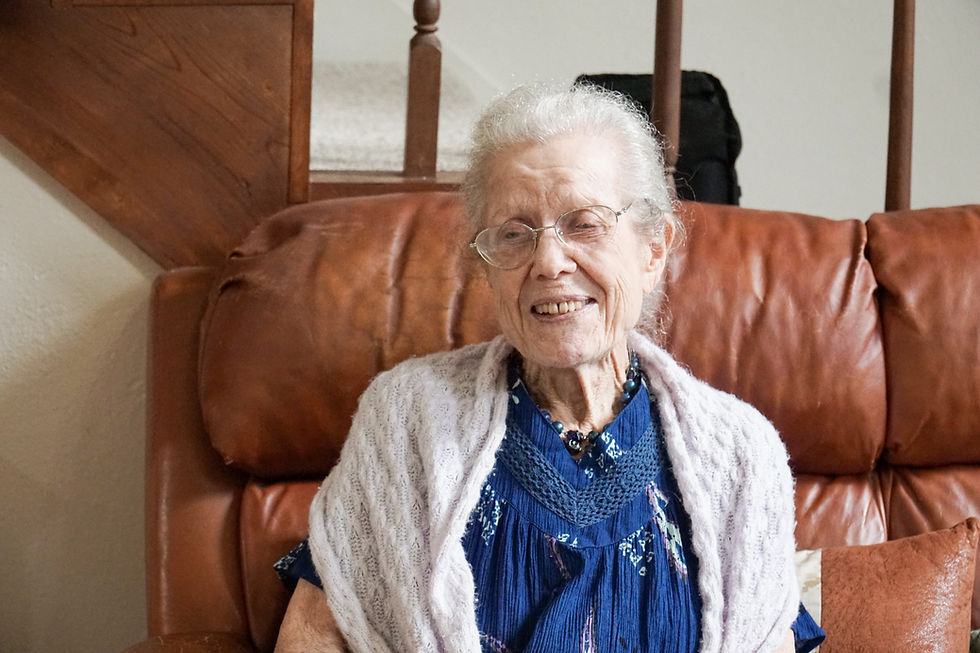When Home No Longer Fits: Understanding the Transition to Assisted Living
- Lauren Fallat, LPC LPAT ATR-BC

- Jul 17, 2025
- 3 min read

The Transition to Assisted Living
The decision to move into an assisted living community is one of the most significant transitions in an older adult's life. It marks not just a change in physical location, but often a profound emotional and psychological shift. This move can evoke a range of complex feelings—relief at no longer managing household responsibilities, grief over leaving behind a familiar home, resistance to change, and hope for improved quality of life. Whether prompted by mounting health concerns, safety risks, or increasing care needs, the transition from home to assisted living calls for thoughtful preparation and compassionate guidance. This blog explores the nuanced emotional terrain of this journey and offers strategies for navigating it with empathy.
For many older adults, the home is more than just a place—it is a symbol of identity, freedom, and emotional history. It may hold decades of memories, a sense of security, and self-determination. Moving away from this space can feel like losing a part of oneself. It is crucial to recognize that grieving this change is not only common but necessary. By naming the loss and allowing space for sadness, older adults can begin the process of psychological adjustment and healing.
Assisted living communities are designed to bridge the gap between independent living and more intensive medical care. They offer housing, meals, assistance with daily activities, and access to healthcare professionals—all within a structured yet socially vibrant environment. These communities emphasize promoting autonomy while ensuring safety, which can be a comforting balance for those struggling with limitations in mobility or memory.
Benefits of Assisted Living
A central benefit of assisted living is the increased potential for meaningful social engagement. Loneliness is a significant risk for older adults and can exacerbate depression, anxiety, and even physical illness. Assisted living facilities provide built-in opportunities for connection through shared meals, organized activities, recreational outings, and interest-based groups, helping residents build friendships and rediscover joy in daily living.
To ease the emotional transition, it is vital to foster open, honest conversations between older adults and their loved ones. Discussing the motivations behind the move, fears and concerns, and what is most important in a new living space helps validate the older adult's feelings and fosters trust. Involving them in every step of the decision-making process—from touring communities to selecting furnishings for their new room—restores a sense of agency that can otherwise feel lost.
Pre-transition visits can be especially beneficial. Touring communities, having meals there, and attending introductory events allows prospective residents to familiarize themselves with the environment and meet future neighbors and staff. These initial experiences can build comfort and reduce the fear of the unknown. Once the move occurs, decorating the new living space with beloved items, cherished photos, and meaningful decor helps to reinforce a sense of home.
Emotional Support is Crucial
Emotional support during and after the transition is critical. Professional counseling or support groups can provide a safe space for older adults to express emotions, work through fears, and feel less alone in their experience. Similarly, family members may need therapeutic support to address feelings of guilt, sadness, or doubt about their role in the transition. Normalizing these emotions and providing tools for coping can make the process more manageable for everyone involved.
Ultimately, transitioning to assisted living should not be seen as the end of independence, but as a redefinition of it. When framed thoughtfully, this move can open the door to renewed energy, purposeful living, and a vibrant sense of community. With patience, compassion, and careful planning, older adults can not only adapt but thrive in their new environment—discovering that home is not just a place, but a feeling that can be cultivated wherever care, comfort, and connection exist.
To Schedule an Appointment for Counseling or Art Therapy
To Schedule an appointment, please click here.
To learn more about Holistic Health Counseling Center, please visit our website at www.hhccnj.com
To learn more about Art Therapy, please visit our Art Therapy website at: https://www.arttherapynj.com/
If you or someone you know is suffering with Tinnitus, please visit our website for more information about how we can help at: www.HelpforTinnitus.com


